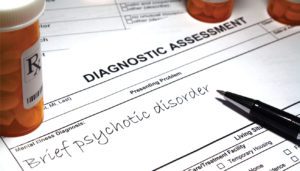

These substances have been used for many centuries in many cultures around the world as part of religious rituals, for healing and overall feelings of wellbeing. Over the past few years, researchers at Johns Hopkins as well as other distinguished Centers around the US, have been conducting studies on the use of psychedelics to help treat patients diagnosed with PTSD, treatment resistant depression, severe anxiety disorders, and substance abuse disorders. The responses seen in many of these patients has been dramatic. For many of these patients, their day to day function and quality of life improvement is staggering. The majority of patients entered in these studies have been on multiple medications and have been through many conventional modes of treatment with little or no success in treating their conditions and symptoms.
From a scientific perspective, part of the explanation may lie in the changes in the brain that occur during and after treatment with these substances. Normal development in parts of the brain responsible for mood, satiety, and emotional response is hindered in many patients struggling with PTSD, MDD, severe anxiety and addiction. Psychodelic and dissociative drugs are thought to promote neural growth and maturation of dendrites in these same areas of the brain. Interestingly, these changes occur almost instantaneously which may explain in part why responses in symptoms occur relatively soon after treatment.
For the past three and half years, we have been treating patients with major depressive disorders, anxiety disorders, PTSD, and OCD at our facility. The majority of our patients have been on many different medications of varying classes to help treat their conditions and symptoms. In addition to psychotherapy and counseling, some have been treated with ECT and TMS. Whether they received any relief at all, the relief was short lived, or patients did not tolerate side effects, their clinical situation forced them to seek alternatives. While functionality in our patients varies widely, the common thread is that the depression, and anxiety, affects every aspect of their lives.
It is impossible to predict which patients will respond to intravenous Ketamine. Patients with situational depression would be less likely to have a prolonged benefit from Ketamine infusion therapy. At our Center, patients are chosen carefully on the basis of likelihood to respond based on careful evaluation of history and are treated from infusion to infusion based on response to a certain dosage and their tolerance to the dosage. Patients are carefully monitored during the infusions both hemodynamically as well as for their tolerance of the psychomimetic effects of Ketamine. For patients who do respond, IV ketamine treatment can be life changing. These patients describe “getting their lives back”.
If you or someone you are close to have been struggling and are wondering if Ketamine may be an option, please don’t hesitate to give us a call. I would be happy to speak with you and explain the process and determine whether IV ketamine is a worthwhile option at this time.
Gulf Coast Ketamine Center
2415 University Parkway, Building #3,
Suite 215, Sarasota, FL 34243
941-213-4444 | www.findpainrelief.com
Steven Reichbach, MD
Board-Certified Anesthesiologist
President and Founder,
Gulf Coast Ketamine Center
 Southwest Florida's Health and Wellness Magazine Health and Wellness Articles
Southwest Florida's Health and Wellness Magazine Health and Wellness Articles

